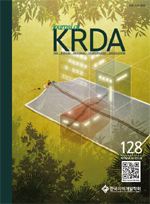학술논문
농촌 공적개발원조 프로젝트 평가를 위한 고려 사항
이용수 41
- 영문명
- Considerations for Evaluating Rural Official Development Assistance Projects Considerations for Evaluating Rural Official Development Assistance Projects Considerations for Evaluating Rural Official Development Assistance Projects Considerations for Evaluating Rural Official Development Assistance Projects
- 발행기관
- 한국지역개발학회
- 저자명
- 임형백(Hyung Baek Lim) 조영국(Youngkug Joh) 고순철(Soonchul Ko) 임상봉(Sang Bong Im)
- 간행물 정보
- 『한국지역개발학회지』제35권 제5호, 169~196쪽, 전체 28쪽
- 주제분류
- 사회과학 > 지역학
- 파일형태
- 발행일자
- 2023.12.31
6,160원
구매일시로부터 72시간 이내에 다운로드 가능합니다.
이 학술논문 정보는 (주)교보문고와 각 발행기관 사이에 저작물 이용 계약이 체결된 것으로, 교보문고를 통해 제공되고 있습니다.

국문 초록
이 논문은 농촌 공적개발원조 사업 중 프로젝트를 사업을 중심으로 성공과 평가를 위한 고려사항을 고찰하였다. 프로젝트의 추진절차인 사업발굴, 사업형성, 사업심사, 사업기획, 사업수행의 5단계에 따라 고찰하였다. 한국이 OECD DAC에 가입한 것은 2009년이다. 그런데 현재 100개 이상의 국가에서 약1,800여개의 국제개발협력 사업을 시행하고 있다. 또 예산도 빠르게 증가하고 있다. 한국의 경제성장과 더불어 국제사회에 대한 기여는 당연한 일이다. 하지만 한편으로는 국제개발협력의 양적성장을 질적성장이 따라가지 못한다. 한국은 국제개발협력을 실시할 때, 식민지 지배의 경험이 없다는 것을 내세운다. 그리고 원조수원국에서 원조공여국으로 전환한 유일한 국가라는 것을 자랑스럽게 제시한다. 물론 약소국에 대한 식민지 지배 경험이 없다는 것은 떳떳한 역사이고, 원조수원국과 유사한 한국의 경험은 많은 원조수원국에게 보다 다가갈 수 있다. 그러나 식민지 지배 경험이 있는 국가들이 도덕적으로는 비난을 받지만, 한국 보다 과거 피식민지였던 원조수원국을 잘 알고 있다는 것도 간과해서는 안된다. 제2차 세계대전 이후 과거의 식민지학을 개발학이라는 이름으로 재빠르게 탈바꿈한 영국이 개발학 분야에서 우위를 점하고 있고 식민지 시대에 획득한 지식을 국제개발협력에 활용하고 있는 것도 사실이다. ODA에는 인도적 목적, 정치적 목적, 경제적 목적이 있다고 하였다. 원조공여국들이 인도적 목적을 가장 앞에 내세운다. 하지만 일반적인 견해는 ODA가 제2차 세계대전(1939-1945) 이후, 마샬 플랜(Marshall Plan)을 비롯한 전후 복구사업들로부터 시작되었다고 본다. 즉 태생적으로 ODA의 탄생 자체가 제2차 세계대전 이후의 냉전 상황에서, 자본주의 진영과 공산주의 진영의 세력확장을 위한 것이었다. 또 원조수원국의 경제가 발달하고 성장하는 시장에 원조공여국이 진출하는 것은 일차적으로는 원조공여국에 경제적 이익이 된다. 하지만 더 나아가 ODA에 대한 원조공여국 국민들의 지지를 높일 수 있고, 원조수원국의 경제규모가 커짐에 따라 더 많은 금액을 ODA에 사용할 수 있는 선순한 구조를 만들어 낼 수 있다. 동시에 공적개발원조 프로젝트가 OECD DAC의 평가기준을 충족시키는 좋은 결과를 만들어 내고, 이를 과학적이고 객관적으로 평가하는 것도 중요하다.
영문 초록
Korea joined OECD DAC in 2009. However, currently, approximately 1,800 international development cooperation projects are being implemented in more than 100 countries. Also, the budget is increasing rapidly. Along with Korea’s economic growth, it is natural for it to contribute to the international community. However, on the other hand, qualitative growth cannot keep up with the quantitative growth of international development cooperation. When conducting international development cooperation, Korea asserts that it has no experience of colonial rule. And we are proud to present that we are the only country that has transitioned from an aid recipient to an aid donor. Of course, it is an honorable history to have no experience of colonial rule over a weak country, and Korea’s experience, which is similar to that of aid recipient countries, can be more accessible to many aid recipient countries. It is also true that Britain, which quickly transformed the colonial studies of the past into development studies after World War II, holds the upper hand in the field of development studies and is utilizing the knowledge acquired during the colonial period for international development cooperation. It was said that ODA has humanitarian, political, and economic purposes. Aid donor countries put humanitarian goals at the forefront. However, the general view is that ODA began after World War II (1939-1945), with post-war recovery projects including the Marshall Plan. In other words, the birth of ODA was originally intended to expand the power of the capitalist and communist camps in the Cold War situation after World War II. In addition, the advancement of aid donor countries into markets where the aid recipient country’s economy is developing and growing is primarily of economic benefit to the aid donor country. However, it can further increase the support of the citizens of aid donor countries for ODA, and create a benevolent structure in which more money can be used for ODA as the economic size of the aid recipient country grows. At the same time, it is important for official development assistance projects to produce good results that meet the evaluation standards of OECD DAC and to evaluate them scientifically and objectively. In the short term, we need to develop evaluation methods for projects, accumulate sufficient experience and data, and in the long term, expand to evaluation of policies, institutions, fields, topics, and national support. Through this, it should be possible to provide data on Korea's official development assistance policy establishment.
목차
1. 서 론
2. 공적개발원조 프로젝트 추진절차
3. 사업형성
4. 사업 심사 및 시행계획 확정
5. 심층기획조사 및 협의의사록 서명
6. 집행계획 수립
7. 소결
8. 결 론
참고문헌
키워드
해당간행물 수록 논문
- 한국지역개발학회지 제35권 제5호 목차
- A Place-based Spatial Analysis on the Occurrence and Diffusion of COVID-19: Focused on Seoul’s COVID-19 confirmed people’s visiting places
- 농촌 공적개발원조 프로젝트 평가를 위한 고려 사항
- 조합장 리더십이 주택정비사업 추진과정과 사업성과에 미치는 영향 분석
- 고령인구를 고려한 폭염취약지 공간분석
- 통행목적지의 도시적 특성에 따른 교통에너지 소비량 발생 요인 분석
- 서울시 장애인의 대중교통 이용에 영향을 미치는 도시특성 분석
- 산촌의 입지 유형에 따른 사회경제적 변화
- 인구와 경제를 고려한 도시축소(urban shrinkage) 진단 및 유형별 사회경제적 특성 분석
- 지속가능한 스마트도시의 지속가능성 요소 분석
참고문헌
교보eBook 첫 방문을 환영 합니다!

신규가입 혜택 지급이 완료 되었습니다.
바로 사용 가능한 교보e캐시 1,000원 (유효기간 7일)
지금 바로 교보eBook의 다양한 콘텐츠를 이용해 보세요!






